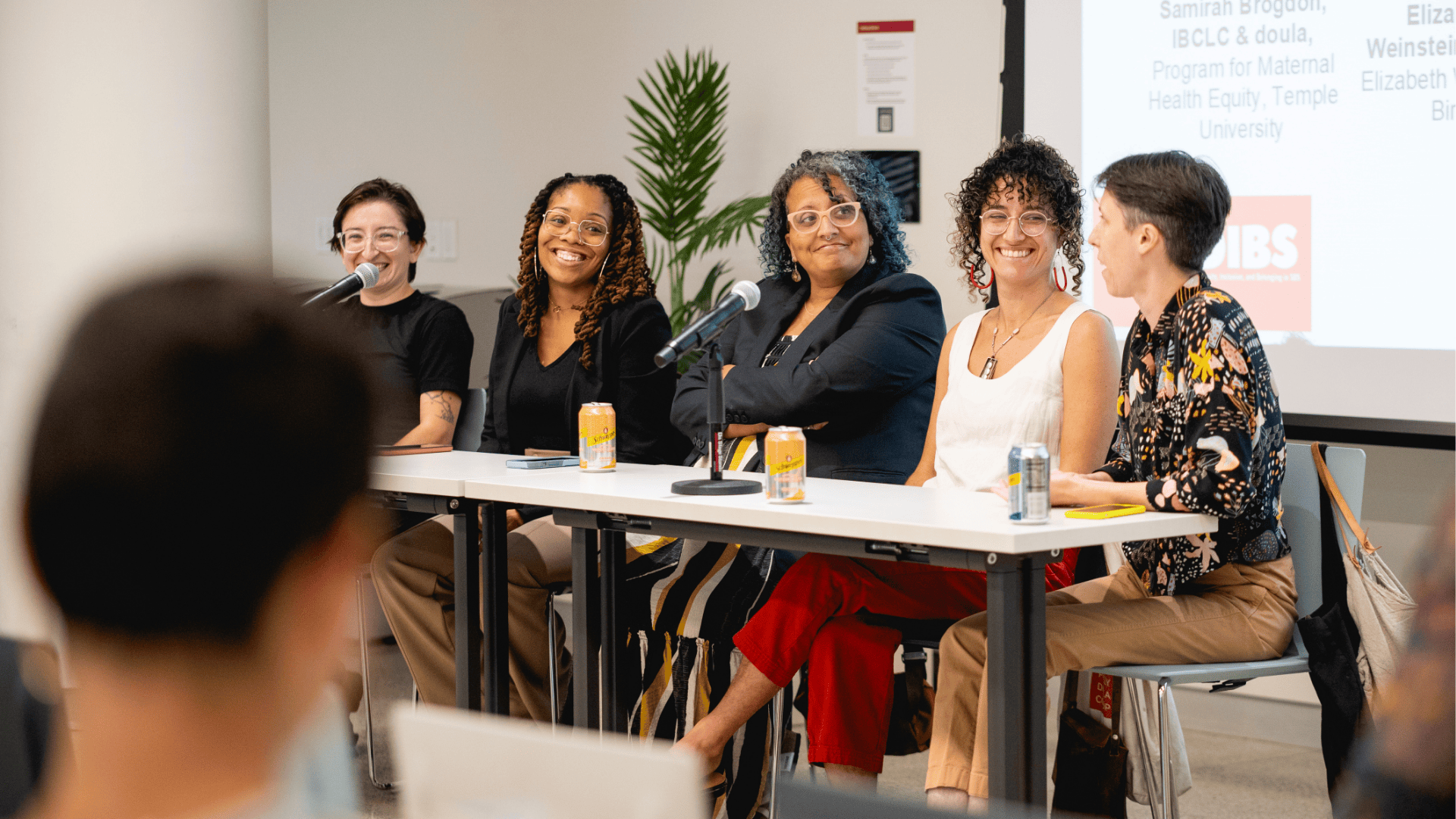At Temple University’s College of Public Health, the importance of inclusive healthcare is central to our mission of improving health equity. Recently, our community gathered for Inclusive Birth Practices, an event organized by Dr. Susannah Anderson, Associate Professor in the Department of Social and Behavioral Sciences, and the DIBS Committee (Diversity, Inclusion, and Belonging in SBS).
The event examined how to provide culturally competent care to LGBTQIA+ families during pregnancy, birth, and postpartum. The discussion, led by a distinguished panel of experts—Samirah Brogdon (IBCLC & doula, Temple University), Elizabeth Weinstein (doula, Elizabeth Weinstein Birth), Victoria Dean (midwife, Refuge Midwifery), Steph Brown (IBCLC, Philadelphia Midwife Collective), and Mari-Carmen Farmer (midwife, Thomas Jefferson University Hospital)—highlighted the progress and challenges in ensuring that queer families receive the care they deserve.
Dr. Anderson underscored the value of hands-on learning: "Our Department, Social and Behavioral Sciences, works to connect students with community organizations and healthcare providers. These partnerships allow students to explore career paths in settings like hospitals, home birth practices, and community health organizations."
A Commitment to Person-Centered, Inclusive Care
Speakers emphasized that every family deserves personalized care that meets their specific needs, a critical concern for LGBTQIA+ families who often face barriers in traditional healthcare settings. Mari-Carmen Farmer, a midwife and anti-racism educator, shared insights from her 20-year career, emphasizing the importance of creating affirming environments for marginalized communities.
Supporting LGBTQIA+ Families Through Inclusive Practices
Victoria Dean, a midwife specializing in fertility care and home birth, highlighted the challenges queer families encounter when navigating a healthcare system built on heteronormative models. "Our work is about providing culturally sensitive care that respects the paths LGBTQIA+ families take to parenthood," she explained.
Doulas and Non-Medical Support
Doulas also play a vital role in providing emotional and physical support throughout the birth journey. Samirah Brogdon, a full-spectrum doula and lactation consultant, emphasized the importance of care, trust, and advocacy, especially for families who have faced trauma in medicalized settings. Elizabeth Weinstein, another doula, shared similar experiences from her work with LGBTQIA+ families.
Addressing Barriers in Care and Health Equity
Despite advances, panelists acknowledged that LGBTQIA+ families, particularly those of color, continue to face systemic barriers such as provider bias and lack of health literacy. Mari-Carmen Farmer highlighted the compounded challenges faced by queer families of color, underscoring the need for intersectional approaches to healthcare.
A Call for Systemic Change
The event concluded with a call for healthcare providers to continue educating themselves on LGBTQIA+ issues and pushing for systemic changes in perinatal care. Steph Brown, a lactation consultant, echoed the need for ongoing efforts to address these disparities. The College of Public Health remains committed to supporting these efforts through research, advocacy, and community engagement.
As Temple’s College of Public Health continues leading efforts toward inclusive healthcare, events like Inclusive Birth Practices remind us that true health equity requires both compassion and systemic change. Our work in supporting LGBTQIA+ families in perinatal care is just one example of our commitment to making healthcare accessible, inclusive, and just for all.

